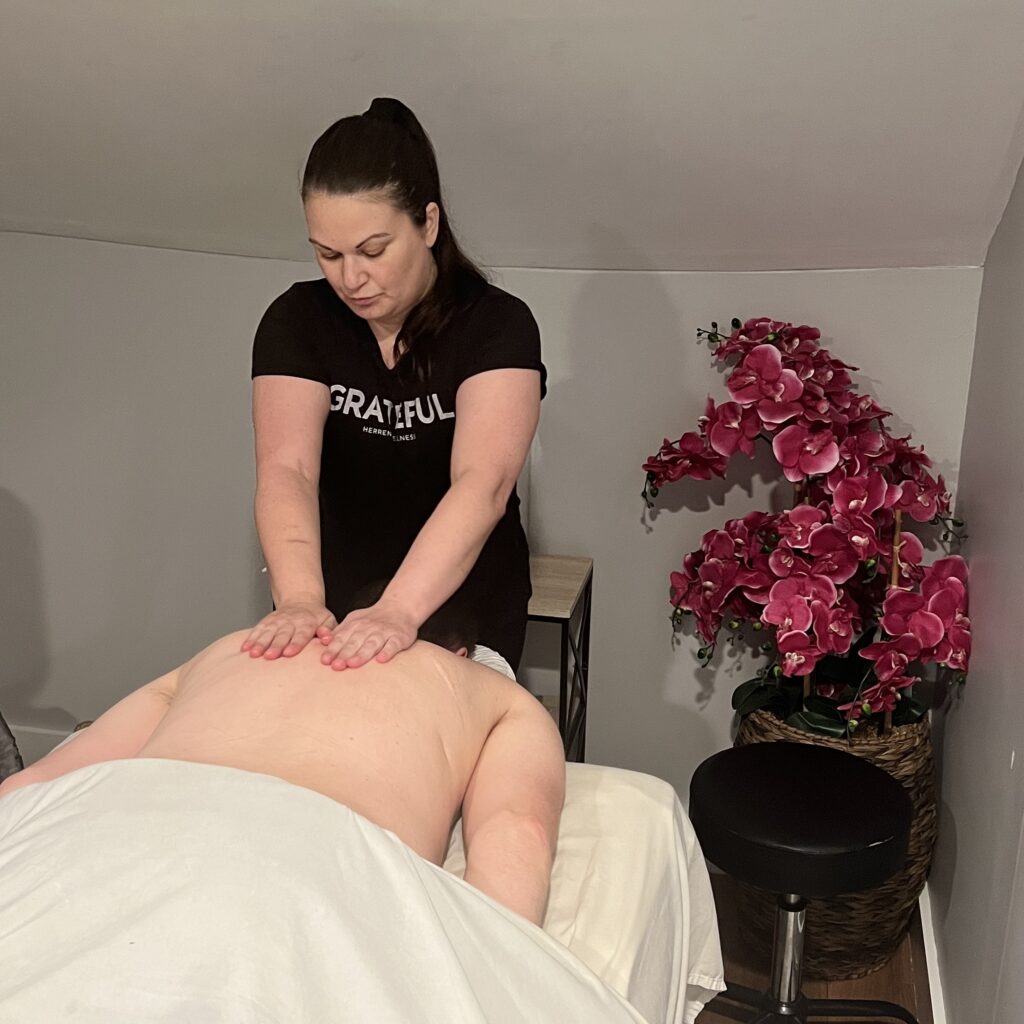
Alcohol has long been part of human history, with its consumption dating back thousands of years. While moderate alcohol consumption is a common social activity for many, it’s important to recognize that, for some people, alcohol can become a source of addiction and destructive behavior.
In fact, 80% of the guests who enter our program at Herren Wellness sighted alcohol as the single substance that they struggle with in active addiction. It impacts all ages at varying times in their life. The separating factor between alcohol and other substances is the social acceptance and legality, prompting individuals and families to wait to seek treatment until the disease progresses to a critical stage.
Defining Alcohol Use Disorder (AUD)
Alcohol Use Disorder, often abbreviated as AUD, is a medical condition characterized by a person’s inability to control their drinking despite adverse consequences.
It is a chronic brain disease, recognized by the American Psychiatric Association and the World Health Organization, and its severity can range from mild to severe. People with AUD may find it challenging to limit their alcohol intake, crave alcohol when they are not drinking, and may experience withdrawal symptoms when not consuming alcohol.
Causes of Alcohol Use Disorder
AUD does not have a single, definitive cause, but rather it results from a complex interplay of genetic, environmental, and psychological factors. Some of the key contributors to the development of AUD include:
- Genetics: A family history of AUD can increase the risk. Research suggests that certain genes may make individuals more susceptible to alcohol misuse.
- Environment: Growing up in an environment where alcohol misuse is prevalent can increase the likelihood of developing AUD. Stressful life events, peer pressure, and easy access to alcohol also play significant roles.
- Psychological Factors: Mental health conditions like depression, anxiety, or trauma can be both a cause and a consequence of AUD. Some people may use alcohol as a way to self-medicate emotional pain.
- Brain Chemistry: Alcohol affects the brain’s reward system, releasing dopamine and creating pleasurable sensations. Over time, the brain may adapt to these changes, leading to increased alcohol consumption to achieve the same pleasurable effect, also known as building up a tolerance to alcohol.
Signs and Symptoms of AUD
Recognizing the signs and symptoms of AUD is crucial for early intervention and treatment. These can vary in severity and may include:
- Craving: An intense desire to consume alcohol, often leading to compulsive drinking.
- Loss of Control: An inability to limit alcohol intake, leading to consuming more than intended.
- Withdrawal: Experiencing physical and psychological symptoms like nausea, sweating, anxiety, and tremors when alcohol is not available.
- Tolerance: Needing more alcohol to achieve the desired effect, which can lead to increased consumption.
- Neglecting Responsibilities: Prioritizing alcohol use over work, school, or family obligations.
- Failed Attempts to Quit: Repeatedly trying to cut down or control alcohol use without success.
- Continued Use Despite Consequences: Persisting in alcohol use despite knowing it causes or exacerbates physical, psychological, and/or social problems.
- Social Isolation: Withdrawing from social activities or hobbies to drink alone or with a select group of people.
- Time Spent on Alcohol: Spending a significant amount of time obtaining, using, or recovering from the effects of alcohol.


Consequence of Alcohol Use Disorder
AUD can have devastating consequences on various aspects of a person’s life. These may include:
- Health Problems: AUD is associated with numerous health issues, including liver disease, heart disease, neurological damage, and an increased risk of certain cancers.
- Mental Health: Co-occurring mental health disorders such as depression, anxiety, and suicidal thoughts are common among people with AUD.
- Family and Social Problems: AUD can strain relationships, lead to family conflicts, and result in social isolation.
- Legal Issues: Driving under the influence (DUI), public intoxication, and other legal problems can occur due to alcohol misuse.
- Financial Hardship: The cost of purchasing alcohol, medical expenses, job loss, or inability to get a job can lead to financial instability.
Treatment Options for AUD
The good news is that AUD is a treatable condition, and recovery is possible. Treatment options vary and can be tailored to meet a person’s specific needs and severity of their condition. It often involves a combination of medical, psychological, and social interventions.
Here are some common approaches to treating AUD:



- Detoxification: Medical supervision during the withdrawal process can help manage the potentially severe – even fatal – symptoms of alcohol withdrawal safely.
- Cognitive Behavioral Therapy (CBT): CBT helps individuals identify and change unhealthy thought patterns and behaviors related to alcohol use.
- Recovery Support Groups: Programs such as Alcoholics Anonymous (AA), SMART Recovery, Refuge and Marijuana Anonymous provide peer support, healthy accountability, and a structured approach to recovery.
- Family Therapy: AUD affects the entire family structure, and family therapy provides support and education for family members, as well as help repair family relationships during the recovery process.
- Individual Therapy: One-on-one counseling sessions with a therapist specializing in addiction recovery.
- Inpatient Treatment: For people with more severe AUD, residential or inpatient treatment programs provide 24/7 support, counseling, and a structured, safe environment to focus on recovery.
- Outpatient Treatment: Less intensive than inpatient or residential programs, outpatient treatment allows individuals to receive therapy and counseling while living at home. It may be suitable for those with less severe AUD or as a complementary treatment after inpatient.
- Holistic Approaches: Therapies like yoga, meditation, mindfulness practices, breathwork, acupuncture and others can be beneficial in accelerating the recovery process, reducing stress and promoting overall well-being.
- Relapse Prevention: Learning healthy coping strategies and relapse prevention techniques are a crucial part of treatment for AUD. Individuals can develop skills to deal with triggers and stressors that might lead to relapse.
- Peer Support: Connecting with others can be inspiring and provide valuable insights into the recovery process.
It’s important to note that the most effective treatment plan for AUD is often individualized, and should take into account a person’s unique needs and circumstances. Seeking help from a healthcare professional or AUD specialist is a crucial first step in determining the most appropriate treatment approach.
Overcoming the Stigma of Alcohol Use Disorder
Due to broad misconceptions about Alcohol Use Disorder, its symptoms, and causes, overcoming the stigma associated with this disease is an essential step towards creating a more compassionate and effective approach to treating this widespread issue.
One of the key challenges is dispelling the misconception that AUD is solely a matter of personal choice or moral failing. By acknowledging that AUD is a complex medical condition with complex contributing factors, we can reframe the conversation.
It’s crucial to emphasize that those struggling with Alcohol Use Disorder are not defined by their condition; they are deserving of empathy and support on their journey to recovery. By fostering a culture of understanding and non-judgment, we can encourage those affected by AUD to seek help without fear of social isolation and/or discrimination.

Education plays a pivotal role in dismantling the stigma that can be associated with any substance use disorder. Communities, schools, and workplaces should prioritize providing accurate information about substance use disorders, emphasize that recovery is possible, and encourage open dialogue about mental health.

About Herren Wellness
Herren Wellness is a thriving community of people at all stages in their recovery journey. We introduce holistic therapies and strategies centered around emotional, physical, and spiritual wellness, in addition to life coaching sessions, family support and an individualized wellness plan to provide a solid foundation in recovery from alcohol and substance use.
We believe that staying connected and community has a lasting impact on recovery, and encourage all alumni to participate in our weekly alumni meetings, seasonal events and annual retreat. Your connection to Herren Wellness doesn’t end when your stay ends; we are there for you throughout your recovery journey.
If you, or a loved one, are looking for help, please call us at (844) 443-7736, email us at info@herrenwellness.com, or fill out a contact form. It is never too early or to late to seek help for substance use at any stage.





